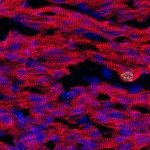Lien vers Pubmed [PMID] – 34061573
Lien DOI – 10.1146/annurev-genom-083118-015012
Annu Rev Genomics Hum Genet 2021 08; 22(): 257-284
Congenital heart disease is the most frequent birth defect and the leading cause of death for the fetus and in the first year of life. The wide phenotypic diversity of congenital heart defects requires expert diagnosis and sophisticated repair surgery. Although these defects have been described since the seventeenth century, it was only in 2005 that a consensus international nomenclature was adopted, followed by an international classification in 2017 to help provide better management of patients. Advances in genetic engineering, imaging, and omics analyses have uncovered mechanisms of heart formation and malformation in animal models, but approximately 80% of congenital heart defects have an unknown genetic origin. Here, we summarize current knowledge of congenital structural heart defects, intertwining clinical and fundamental research perspectives, with the aim to foster interdisciplinary collaborations at the cutting edge of each field. We also discuss remaining challenges in better understanding congenital heart defects and providing benefits to patients.

